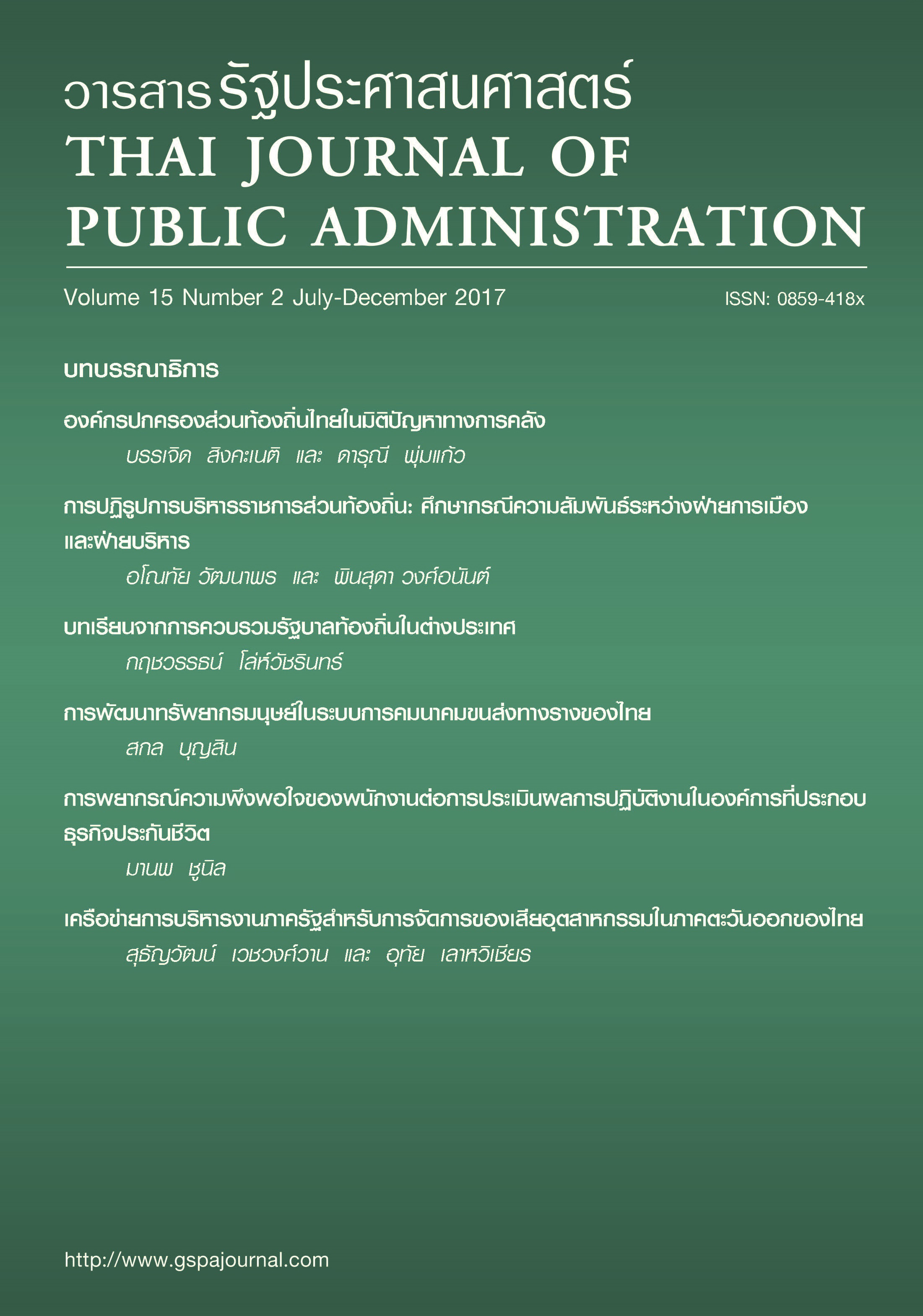Local Government Consolidation: Lessons from Selected Countries
คำสำคัญ:
Consolidation, local government, service delivery efficiencyบทคัดย่อ
Local government consolidation refers to combining two or more local self-governing units into a single unit to provide public services in the locality. Consolidation is a common policy instrument of local government reform used by countries around the world with the objective of improving efficiency in the provision of public services. The government of Thailand has long considered merging local administrative organizations but lacks systematic data on the potential impacts of such actions. This article aims to draw lessons from the consolidation experiences of both federal and unitary states—namely Australia, Canada, France, Ireland, Japan and the United States. The study found that the success of consolidation is highly context-dependent and that consolidation does not lead to expected outcomes; the benefits of consolidation are often exaggerated. In some cases, consolidation did improve service provision efficiency but only to a relatively small degree. In other cases, consolidation led to increases in costs due to the introduction of new public services, loss of local identity, and reduced political representation.



